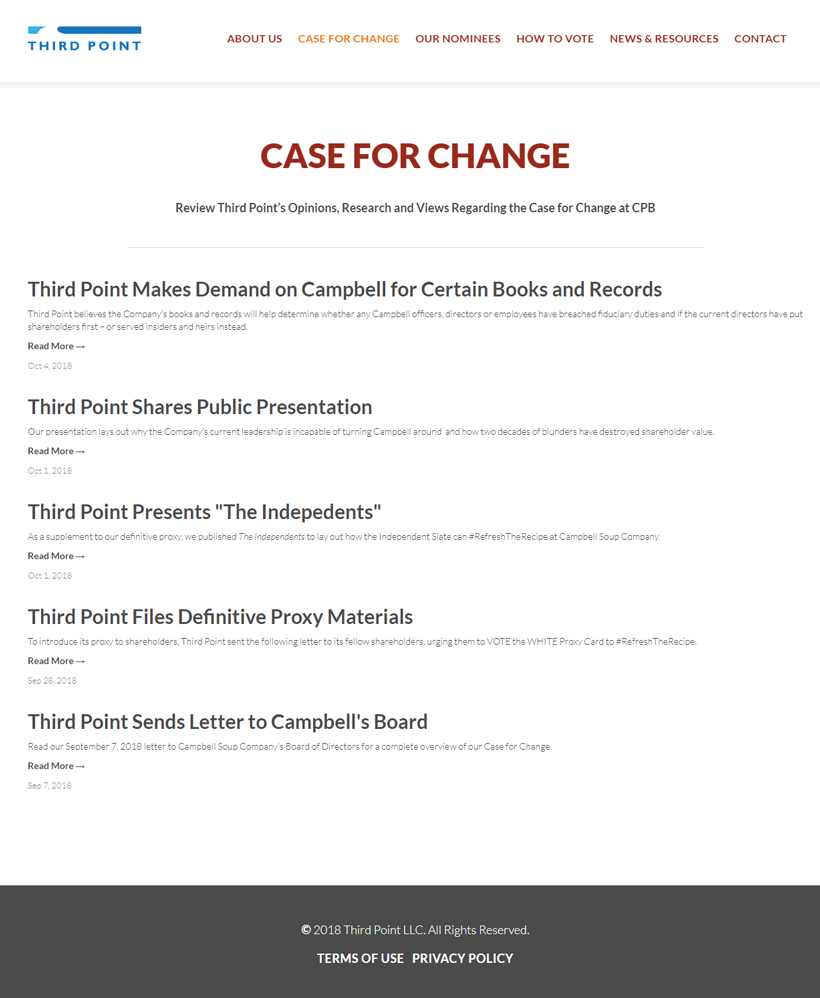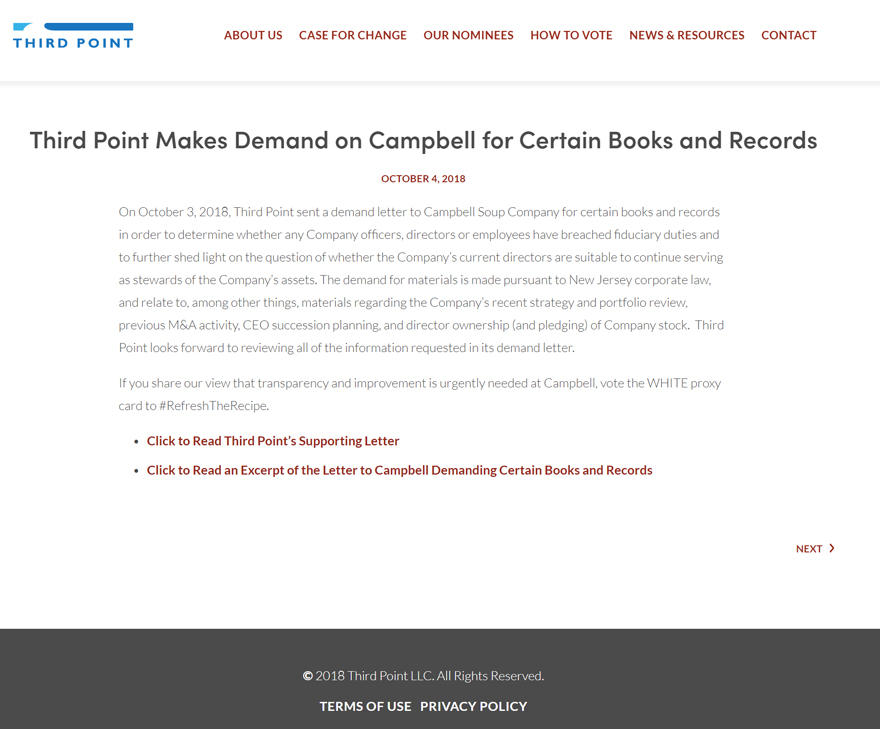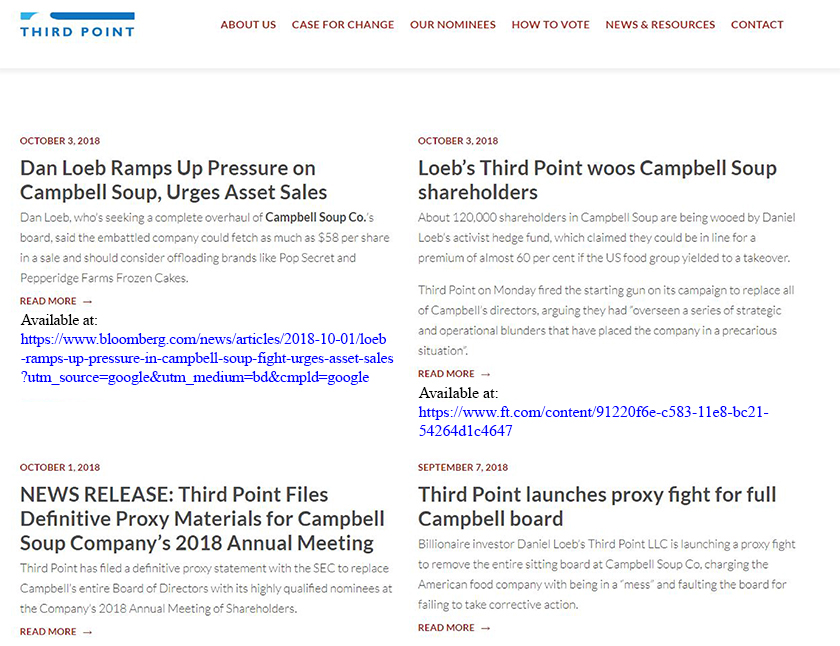Campbell’s Earnings Call, August 30, 2018. (emphasis added) http://investor.campbellsoupcompany.com/phoenix.zhtml?c=88650&p=irol-presentations.
These admissions demonstrate that shareholders are entitled to the records of the Company’s decision-making processes to investigate this unquestionable mismanagement and further instances of wrongdoing and to determine whether the directors, who are supposed to be the stewards of shareholder assets, should be replaced.
The Company’s recent missteps in strategy, capital allocation, and succession planning also deserve closer shareholder scrutiny. In May 2018, the Company initiated a strategic review intended to assess “a full slate of strategic options, including optimizing the portfolio, divesting businesses, splitting the company, and pursuing a sale.” (McLoughlin public statement August 30, 2018). The strategic review process, which was billed as a comprehensive and thorough review, turned out to be a sham, and ended with the Company announcing that it would seek to sell its fresh food business, including Bolthouse Farms, as well as its Arnott’s and Kelsen brands overseas. Potential acquirors of all or a meaningful portion of the Company were not contacted nor was a sale process pursued – which is flatly inconsistent with the Board’s public promise that it was reviewing a “full slate” of options. Shareholders responded unenthusiastically to these tepid measures and an opaque process that did little to arrest the Company’s declining fortunes. Like so many past initiatives, the Company’s purported strategic review process did not serve shareholders well and no one has been held accountable. Shareholders plainly are entitled to records to determine why the Company did not engage in a full and proper process—as they had publicly disclosed they would do.
The Board has used the shareholders’ checkbook for a years-long undisciplined,ill-conceived and reckless acquisition binge. Purchases of Bolthouse, Pacific Foods,Snyder’s-Lance and an investment in Juicero cost more than $8 billion, but did not result in a corresponding increase in shareholder value and, in the case of Juicero, resulted in total value destruction.https://www.cnbc.com/2017/03/24/campbell-soup-faces-shrinking-soup-business-as-fresh-segment-struggles-.html (“Bolthouse Farms and Garden Fresh Gourmet were expected to be bright spots in Campbell Soup’s portfolio when they were acquired, with the hope the brands would offset slowing growth in the soup category. Instead, the two businesses — part of the company’s Campbell Fresh segment — have struggled and new management was brought in last October to speed up the turnaround.”). The Company now plans to sell Bolthouse (after failed attempts at a turnaround since its 2012 acquisition), Juicero has been shut down, and the Company has acknowledged that theSnyder’s-Lance acquisition will be dilutive to shareholder value.
Snyder’s-Lance is an especially egregious example of management failure. Just a few months after its December 2017 announcement – a $6 billion transaction that was the largest acquisition in the Company’s148-year history – management announced that its analysis was flawed and that the transaction would be dilutive, not accretive to shareholders.Compare Campbell Soup Company Press Release on December 18, 2017 (“Campbell expects the acquisition to be accretive to adjusted EPS in fiscal 2019, excluding integration costs and costs to achieve synergies”) with its earnings release announcement on May 18, 2018 (“there are several issues we have uncovered, which will impact fiscal 2019. . . we now expect theSnyder’s-Lance acquisition will be modestly dilutive to our 2019 adjusted earnings per share.”)
- 3 -



